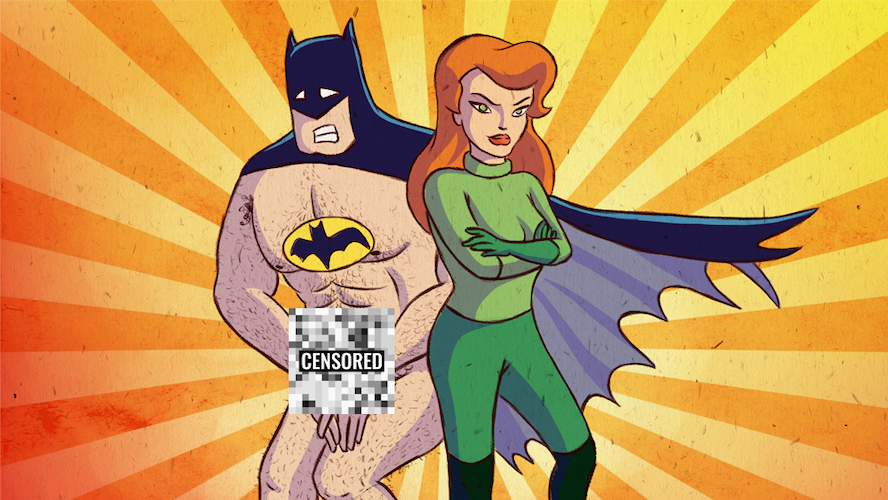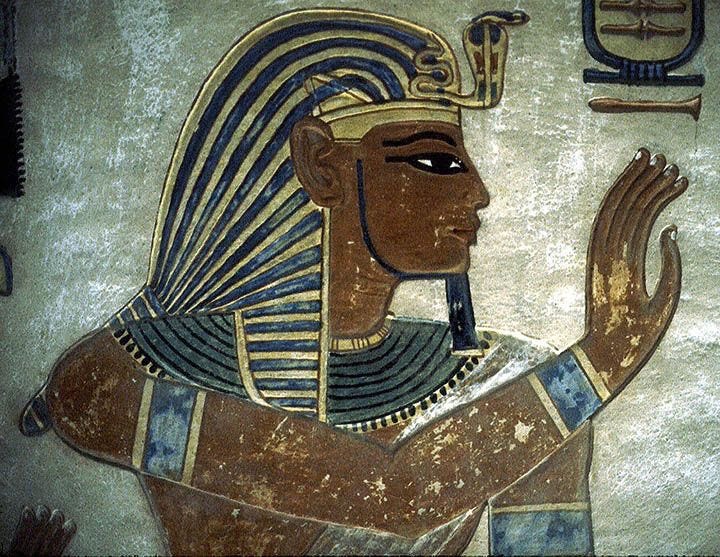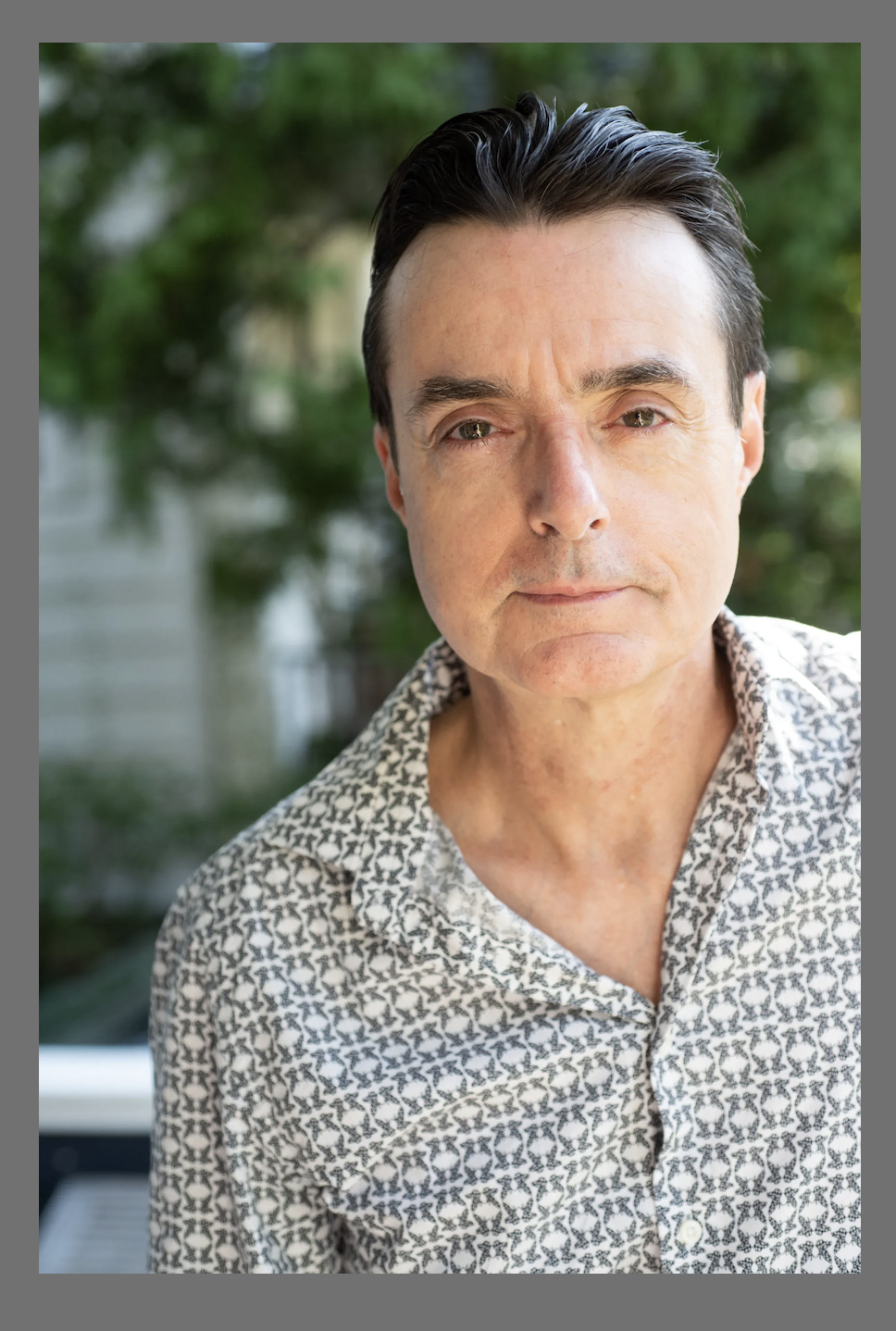Friday, December 22, 2023
Wednesday, November 29, 2023
Friday, November 10, 2023
Tuesday, October 17, 2023
Friday, October 13, 2023
Congratulations to Kennii Ekundayo, 2nd Year MALAS Graduate Student, and Recipient of the Rosario J. Patti Memorial Endowed Scholarship for the Humanities
We are very excited to share that our graduate student, Kennii Ekundayo, has been selected for the Rosario J. Patti Memorial Endowed Scholarship for the Humanities. This funding amounts to $2,850 and will be helpful toward settling current academic financial commitments. Kennii shares her first reaction to the award: "I believe that the Rosario J. Patti Memorial Endowed Scholarship's decision to support students in the humanities comes at a time when education, especially within the humanities, has suffered so much backlash resulting in students -- even alums -- beginning to question the importance of this discipline. As a result, this is not only a timely gift but is also reinvigorating. Thank you for all the encouragement, support, and mentorship!"
Kennii with author Mark Dery after
a lecture here in early 2023.
Tuesday, October 10, 2023
Tuesday, October 3, 2023
How to be a Successful MALAS Graduate Student and MAYBE Have a Shot at a TAship!!!!
Let me tell you about the path I chose to take…
Almost every incoming freshman is required to take a developmental writing course at SDSU. That typically is RWS 100 one semester, followed by RWS 200 the next. Many of these classes are taught by graduate student Teaching Assistants (TAs). The TAs are limited to a class size of 25. When you consider the amount of incoming freshmen at SDSU in any given year (approximately 3,700), you’ll understand why there is a need for so many TAs to teach these required classes. Each TA is assigned a class of no more than 25 students.
So, how do you become a TA? There is an application process! But before we get to that…
There is also a required class, RWS 609, Theory and Practice of Teaching Composition, in which you must enroll before you will be offered TA contract. You can enroll in this class during the same timeframe that you intend to apply for a TA position (for the next semester). That is to say, you don’t have to take the class and wait until the following semester to apply – which would result in you waiting for nearly a whole year (although if that’s what you want to do, you can). To clarify what I am saying, let me share the application deadlines from this year:
Here’s the catch: taking the class does not necessarily guarantee that you will be brought on as a TA, so it is a gamble in that you will have potentially “wasted” 3 units, and the money to pay for those 3 units. Bear that in mind, but do not let it discourage you.
- · An application form
- · Transcripts
- · Three current letters of recommendation that will be sent directly to the DRWS office.
- · A statement of purpose
- · A writing sample of about five pages of expository prose
If you do have any questions at all, or would like some assistance in preparing your application, I will happily make myself available to you. Just get in touch with me via ozzie.monge@gmail.com and we’ll go from there. Good luck!
Wednesday, September 27, 2023
MALAS Programming is Taking Off: “Legalize Positivity”: Comics, the Prison Industrial Complex, and HIV/AIDS Education
“Legalize Positivity”: Comics, the Prison Industrial Complex, and HIV/AIDS Education
Clio Reese Sady and Inés Ixierda
Bread and Roses Speakers Series on “Abolition Feminism”
Thursday, September 28 4-5:30pm Arts and Letters 104
Clio Reese Sady (AKA Thatcher) is a cartoonist and former tattoo artist living on unceded Ramaytush Ohlone land in San Francisco, California.
Inés Ixierda is a queer Mestisx interdisciplinary visual artist and media maker in Oakland, California, unceded Ohlone Territory.
Wednesday, August 2, 2023
Late Added MALAS Buddhism Class,
- PHIL 555 / Empirical Perspectives of Buddhism
- Class# (Schedule#): 12745
- Meetings: Tuesday/Thursday 11:00-12:15
- Instructor: Dr. Sandra A. Wawrytko (wawrytko@sdsu.edu)
Description:
An exploration of twenty-five hundred years of Buddhist scholarship and practice in relation to contemporary empirical perspectives, including comparative analyses of epistemological methodology, the conundrum of consciousness, and contemplative science.
How real is the reality we perceive and conceive?
Philosopher and neuroscientist Joshua Greene speaks of “Supervenience” to explain our shifting perceptions of reality: “Imagine a picture on a computer screen of a dog sitting in a rowboat. It can be described as a picture of a dog, but at a different level it can be described as an arrangement of pixels and colors. The relationship between the two levels is asymmetric. The same image can be displayed at different sizes with different pixels. The high-level properties (dogness) supervene the low-level properties (pixels).”
Buddhist epistemology describes these cognitive shifts in terms of the Twofold Truth—we fixate on the picture of the dog, the tip of the iceberg of reality or provisional truth, because it is most obvious to us, unaware of the pixels’ complexity, the deep reality or transcendental truth. Neuroscientists study a corresponding shift between two attentional networks in the brain—task-driven dorsal attention and stimulus-driven ventral attention, yielding egocentric and allocentric awareness respectively.
Chair, graduate adviser, Philosophy DepartmentSan Diego State UniversitySan Diego, CA 92104-6044
Sunday, July 23, 2023
Thursday, July 6, 2023
New MALAS Seminar, Fall 2023! Queering Comics with Jess Whatcott!
LGBT 550/MALAS 600A - Queering Comics
Professor Jess Whatcott“Queering Comics” is an exploration of LGBTQ+ culture, ideas, aesthetics, relationships, identity, and politics through the prism of sequential art. We will use the medium of comics to explore the politics of representation, assessing both the consequences of the absence of complex queer and trans characters, and conversely the stereotypes that are reproduced when queer and trans people do appear. We will also explore how queer and trans people have practiced disidentifying with comics, teaching themselves to locate queerness even in narratives not intentionally created as queer. We will encounter creators who have used comics and graphic narratives to communicate queer ideas, express queer sexuality, and build queer community, sometimes subversively when queer identities are politically suppressed. We will evaluate the backlash against queer and trans comics, the politics of censorship, and the banning of queer visual narratives as sexually explicit content. Finally, we will celebrate the joyful struggle to continue to create and distribute queer and trans graphic narratives. More here: https://comics.sdsu.edu/grants/neh-hsi/courses/whatcott
Jess Whatcott (they/them) is Assistant Professor of gender, women’s, and sexuality studies. Their forthcoming book from Duke University Press revisits the eugenics practice of segregation -- the mass confinement of disability in early twentieth century California. The book also connects this history to on-going reproductive and social control in today’s state institutions. Their research on eugenics, carcerality, and speculative fiction appears in Signs: A Journal of Women in Culture and Society; Feminist Formations; Politics, Groups & Identities; Lateral; and edited book collections. Dr. Whatcott is affiliated with the SDSU Center for Comics Studies, and you can find them at Comic Con International presenting on "Comic Justice."
New Fall 2023 Seminar with SDSU History Professor Eve Kornfeld: History 582/ MALAS 600 20th Century Intellectuals and Society
How can a thinking individual act in a world of political rupture, virulent nationalism, economic crisis, lies, and violence? In a seminar format, we will explore the dramatically changing responses of 20th-century intellectuals to challenges strikingly similar to our own. Three principal postures will be examined in detail: an initial desire of intellectuals to turn inward, manifested in the development of psychology and “modernism” between 1890 and World War I; a period between the wars of social and political activism by “engaged” intellectuals; and, finally, the search by intellectuals after World War II for a synthetic stance between isolation and cooptation. We will compare formulations of these roles in a variety of disciplines, including philosophy, psychology, physics, art, architecture, music, drama, and fiction. The seminar will culminate with individual research and group presentations on intellectuals and the Cold War, and intellectuals and post-colonialism around the world in the late 20th and 21st centuries. Requirements include active participation in seminar discussions, group presentations, and an individual research paper on an intellectual of your choice from anywhere in the post-WWII world. There are no prerequisites for the seminar, beyond a willingness to read/view and discuss some of the most exciting works of the twentieth century.
Dr. Eve Kornfeld is Senate Distinguished Professor and Professor of History at San Diego State University. She earned her B.A. at Princeton University and her M.A. and Ph.D. in History at Harvard University, and has taught in Harvard’s History and Literature concentration, Princeton’s History and European Cultural Studies departments, and SDSU’s History, MALAS, Honors, and Arts Alive Collaborative programs. Her teaching and scholarship are interdisciplinary, transnational, polyphonic, and informed by post-colonial, post-structural, gender and critical race theory. Her books were published in the Bedford Series in History and Culture of St. Martin’s Press, and her articles appeared in the William and Mary Quarterly, Journal of the Early Republic, Journal of American Studies, Canadian Review of American Studies, New England Journal of History, Pennsylvania History, History Teacher, and the Journal of American Culture. She served on the governing board of the American Culture Association. She received SDSU’s Excellence in Teaching Award in the Humanities and Social Sciences in 2017, the Senate Excellence in Teaching Award in 2018, the Exceptional Service Award in the Humanities and Social Sciences in 2021, and the Darlene Shiley Honors Faculty Fellowship Award in 2023.
New Fall 2023 MALAS Seminar! --> SEMINAR IN DAOIST PHILOSOPHIES: PAST AND PRESENT PHIL600_MALAS600C, Sandra A. Wawrytko, Ph.D
SEMINAR IN DAOIST PHILOSOPHIES: PAST AND PRESENT
PHIL600_MALAS600C, Fall, 2023 W 2-4:45, AL 422
Sandra A. Wawrytko, Ph.D
“a morality which encourages man to detach himself from his animal origins
and to regard all nature as subject to him does not offer our best hopes for the future”
Joseph W. Meeker, The Comedy of Survival; Studies in Literary Ecology
Grounded in Naturalism, Daoist philosophies emphasize our deep connection with Nature in terms of the yin of Dao—the way of reality. It also questions the viability of human civilization, which estranges us from Dao and its life-affirming virtuosity. We will examine the claims and strategies of Daoist philosophers set forth over thousands of years to evaluate their potential contributions to reversing the toxic effects of yang’s “cunning intellect.”
primary texts Lao Zi, Dao De Jing; Zhuang Zi, Zhuang Zi; Sun Zi, Bing Fa (Methods of Warfare); Neo-Daoist Sun Bu-er (female master), poems; Masanobu Fukuoka, The One-Straw Revolution: An Introduction to Natural Farming
commentaries Lao Zi and Spinoza; Daoist Metaphysics and Heidegger; Zhuang Zi and Nietzsche
applications ecology, conflict resolution, leadership, military strategy
Sandra A. Wawrytko, Ph.D., (Washington University in St. Louis, Philosophy) is a Professor in the Department of Philosophy at San Diego State University; former Director of the Center for Asian and Pacific Studies (2014-2021). Research areas—Buddhist and Daoist epistemology and aesthetics in the context of neuroscience; Global Aesthetics; Globalizing Philosophy. More than thirty years teaching intensive summer classes on Buddhism at Tsung Lin University, Taiwan. Author/editor of eight books, twenty book chapters, more than thirty journal articles, with sixty-two presentations at national and international conferences. Recent publications include “Murasaki’s Epistemological Awakening: Buddhist Philosophical Roots of The Tale of Genji” (Journal of Chinese Philosophy 2022), “Lessons in Non-Dualism from World Philosophies” (Journal of World Philosophies 2021), “Murasaki Shikibu of Japan” and “Sun Bu’er of China” in Women Philosophers from Non-Western Traditions: The First Four Thousand Years (Springer, 2023).
Sunday, July 2, 2023
New Fall 2023 Visual Cultural Studies Seminar at SDSU with MALAS: #nakedsouls24: Comics, Animation, Psychoanalysis
ECL 157: Comics and History | MALAS 600D Naked Souls
#nakedsouls24: Comics, Animation, Psychoanalysis
T/Th 11-12:15 GMCS 333; Professor William Nericcio
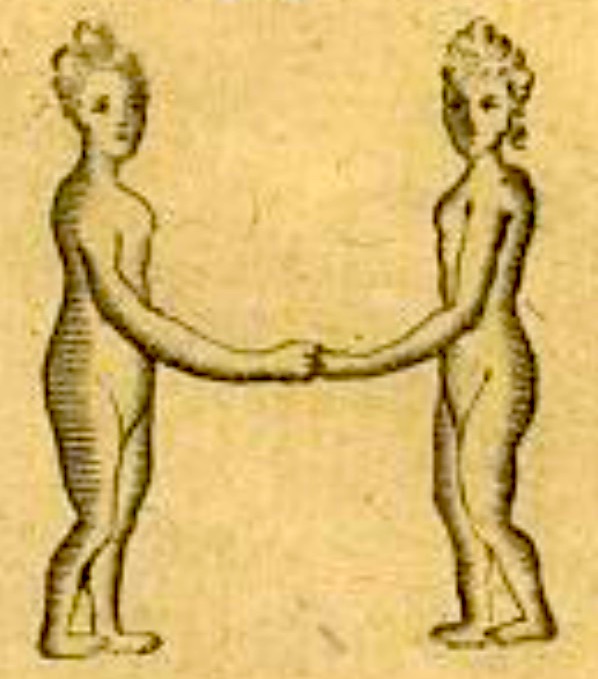 old onto your hats (and iphones!) as we bravely go where no one has gone before... Ok, so you know that’s hype: a total and spectacular exaggeration, the ravings (potentially) of a madman or a bonkers professor! But maybe, just maybe, we can actually do it? Imagine exploring the world of comics, streaming animation, digital storytelling, and AI-designed narrative in a course with the Department of English and Comparative Literature, now known as ECL at SDSU!
old onto your hats (and iphones!) as we bravely go where no one has gone before... Ok, so you know that’s hype: a total and spectacular exaggeration, the ravings (potentially) of a madman or a bonkers professor! But maybe, just maybe, we can actually do it? Imagine exploring the world of comics, streaming animation, digital storytelling, and AI-designed narrative in a course with the Department of English and Comparative Literature, now known as ECL at SDSU! “Holy Robot Algorithms, Batman!” “Holy #nakedsouls23, Robin.”
In this class, we will peruse worlds illustrated and cinematic, literary and philosophical, as we sample some of the most outrageous storytelling from the 20th and 21st centuries.
And while we will be concerned with "history" and "comics" throughout the term, this class will not strictly be a history of comics, a survey of the evolution of men in tights and women in spandex! We are more concerned with the souls of this characters, the naked contours of what we can call the mind or the psyche!
The souls we meet will be “naked,” not naked as in the “clothing optional sense” (though there will be a little of that) but naked in the original sense of the word, that speaks ...
“of things, ‘without the usual or customary covering,’ from Old English. Applied to qualities, actions, etc., ‘mere, pure, open to view, unconcealed,’ from c. 1200; phrase the naked truth, from early 15c...”For the stories we read and the characters we meet will be very much unconcealed, revealing the secrets of their lives and their souls as can only be found in Literature, comics included.
We will learn that "Literature" is the antithesis of the world of bullshit we are presently immersed in on television and social media, where fake news and filters are the name of the game. Our naked souls will be raw, eccentric, controversial, and neurotic. The required works are still being nailed down, but will include the singular amazingness of comics and art by Rene Magritte, Jules Feiffer, Art Spiegelman, Frank Miller & David Mazzucelli, Carlos Fuentes, and Jason Adam Katzenstein, among others!
Saturday, July 1, 2023
New Fall 2023 MALAS Seminar! African Civilization I with Professor Taharka Adé
(AFRAS 520 & MALAS 600c) AFRICAN CIVILIZATION I
New Course open to Juniors, Seniors, and Graduate Students | Mondays 4:00-6:40 PM
Professor Taharka Adé
This course is an intensive investigation into the rise and fall of several major ancient African civilizations. Several civilizations will be covered, including the classical cultures of Kush, Kemet, and Axum, as well as a survey of the early history of the Sudanic empires. Emphasis will be placed on African agency, showing the evolution of the peoples, nations, and their civilizations across space and time within the long history of Africa.
Bio: Dr. Taharka Adé is an Assistant Professor in the Department of Africana Studies. Adé obtained both his Ph.D in Africology from Temple University. His primary research interest is the investigation of various African and African diaspora cultural phenomena and the development of methods of comparative analyses between such phenomena. Adé is the author of W.E.B. Du Bois’ Africa: Scrambling for a New Africa.
Taharka Adé, Ph.D. Assistant Professor Department of Africana Studies Office: AL-371 O: 619.594.3888 San Diego State University | SDSU.edu 5500 Campanile Drive | San Diego, CA 92182
Wednesday, April 12, 2023
Mark Dery Speaking on JG Ballard and More at San Diego State University! Sponsored by MALAS, SDSU Press, and Cool Kids in #papermirror23
SPECIAL GUEST LECTURE
MARK DERY
“Earth is the Alien Planet” Concrete Island, Abject Landscapes, Posthuman Fictions
An Illustrated Lecture
In the Late Anthropocene, we’re all castaways on a soon-to-be-desert island earth. Global weirding is here to stay, eco-pocalypse looms, existential dread is the new normal, and philosophy has taken a “nonhuman turn,” away from the anthropocentric worldview of classic humanism. Philosophers like Eugene Thacker and writers of weird eco-fiction like Jeff Vandermeer conjure an anti-anthropocentric, even post-anthropocentric worldview: a mythology of the world without us. J.G. Ballard got there first. In his short novel Concrete Island, he relocates Robinson Crusoe to the abject landscapes of postwar London. His tale of a car-crash survivor marooned on a traffic island maps a new, posthuman psychology that de-centers not only the self but the species, too, in preparation for the day, not long off, when as Nietzsche puts it in Human, All Too Human, the earth is but the “gleaming and floating gravesite of humanity.” In “Earth is the Alien Planet,” Dery considers the ways in which Ballard problematizes “the human” and humanism, auguring a post-anthropocentric fiction for a post-Anthropocene planet, a World Without Us that neither he nor any of us will inhabit.
About the Author:
Mark Dery is a cultural critic, essayist, and the author of four books: Escape Velocity, a critique of the libertarian-bro ideology that dominated the Digital Revolution of the ‘90s; two studies of American mythologies (and pathologies) The Pyrotechnic Insanitarium: American Culture on the Brink and the essay collection I Must Not Think Bad Thoughts, and, most recently, the biography Born To Be Posthumous: The Eccentric Life and Mysterious Genius of Edward Gorey.
He has taught journalism at NYU and “dark aesthetics” at the Yale School of Art; been a Chancellor’s Distinguished Fellow at UC Irvine, a Visiting Scholar at the American Academy in Rome, and a Poynter Journalism Fellow at Yale. His byline has appeared in a broad range of publications, including New York, The New York Times Magazine, Rolling Stone, Elle, Bookforum, Boing Boing, Cabinet, The Daily Beast, Hyperallergic, Salon, Wired, The Washington Post, and The LA Review of Books.
He popularized the concept of “culture jamming” and, in his 1993 essay, “Black to the Future,” coined the term “Afrofuturism.”
Tuesday, March 21, 2023
Sunday, March 12, 2023
Wednesday, March 8, 2023
Tuesday, March 7, 2023
MALAS CO-SPONSORED PAOLO FREIRE LECTURE … Dr. Olúfẹ́mi O. Táíwò (Georgetown University)
Please join us for our fourth Paulo Freire Lecture on Education and Social Transformation, which the Behner Stiefel Center for Brazilian Studies co-organizes with the College of Education. We are thrilled to host our first in-person Paulo Freire Lecture delivered by Dr. Olúfẹ́mi O. Táíwò (Georgetown University) on Tuesday, March 7 at 4:00 p.m. in SSE 1401 Dr. Táíwò's lecture is titled: "The Point is to Change It: Paulo Freire, Education, and Liberation." Please see the attached flyer for more information.
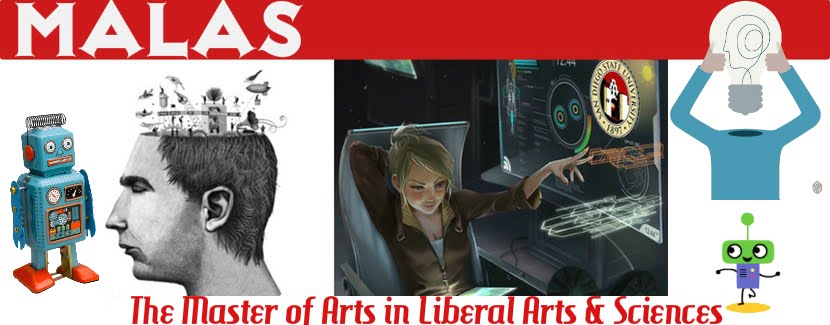


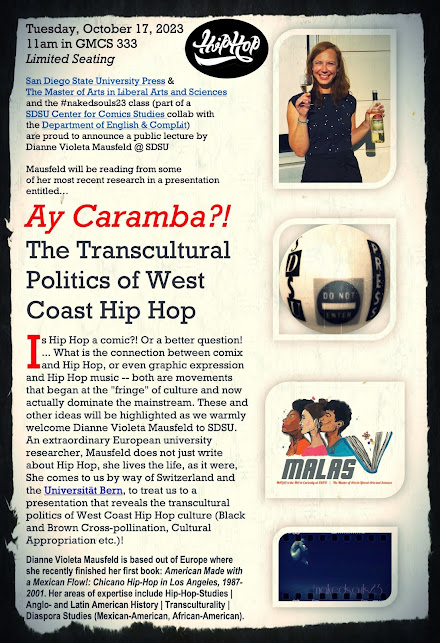










 \
\



